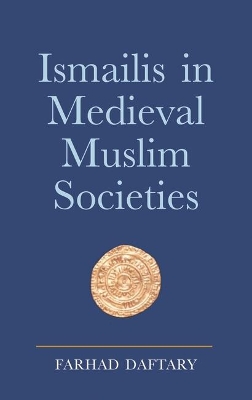Ismaili Heritage
2 total works
v. 12
A comprehensive treatment of Ismaili medieval history in its entirety. It will have great appeal to all scholars of medieval Islam. Farhad Daftary is one of the world's leading authorities on Ismaili history and literature. This important book, by an internationally acknowledged expert in Ismaili studies, introduces Ismaili history and thought in medieval times. Discussing the different phases in Ismaili history, it describes both the early Ismailis as well as the contributions of the later Ismailis to Islamic culture. A number of chapters deal with key Ismaili individuals such as Hasan-i Sabbah. Other chapters contextualise the Ismailis within the early Muslim societies, in addition to investigating the Ismaili-Crusader relations and the resulting legends on the Ismaili secret practices. Over the course of the work, it becomes clear that Ismaili historiography, and the perception of the Ismailis by others (in both Muslim and Christian milieus), have had a fascinating evolution. During their long history the Ismailis have often been accused of various heretical teachings and practices and - at the same time - a multitude of myths and misconceptions have ciculated about them.
Farhad Daftary here separates myth from fact, propaganda from actuality, in a work characterised by his customary mastery of the sources and literature.
Farhad Daftary here separates myth from fact, propaganda from actuality, in a work characterised by his customary mastery of the sources and literature.
The Ismailis have enjoyed a long, eventful and complex history dating back to the 8th century CE and originating in the Shi'i tradition of Islam. During the medieval period, Ismailis of different regions - especially in central Asia, south Asia, Iran and Syria - developed and elaborated their own distinctive literary and intellectual traditions, which have made an outstanding contribution to the culture of Islam as a whole. At the same time, the Ismailis in the Middle Ages split into two main groups who followed different spiritual leaders. The bulk of the Ismailis came to have a line of imams now represented by the Aga Khans, while a smaller group - known in south Asia as the Bohras - developed their own type of leadership.This collection is the first scholarly attempt to survey the modern history of both Ismaili groupings since the middle of the 19th century. It covers a variety of topical issues and themes, such as the modernising policies of the Aga Khans, and also includes original studies of regional developments in Ismaili communities worldwide.
The contributors focus too on how the Ismailis as a religious community have responded to the twin challenges of modernity and emigration to the West. "A Modern History of the Ismailis" will be welcomed as the most complete assessment yet published of the recent trajectory of this fascinating and influential Shi'i community.
The contributors focus too on how the Ismailis as a religious community have responded to the twin challenges of modernity and emigration to the West. "A Modern History of the Ismailis" will be welcomed as the most complete assessment yet published of the recent trajectory of this fascinating and influential Shi'i community.

